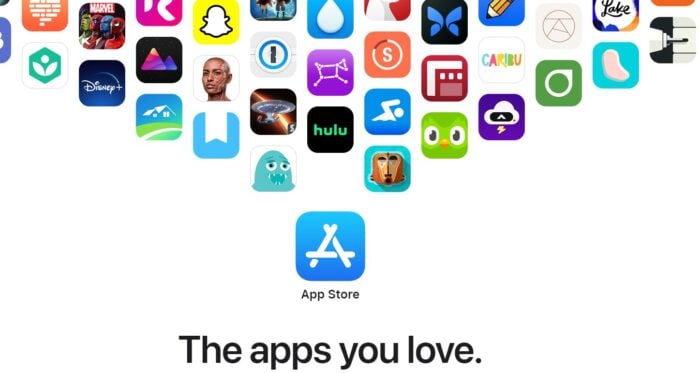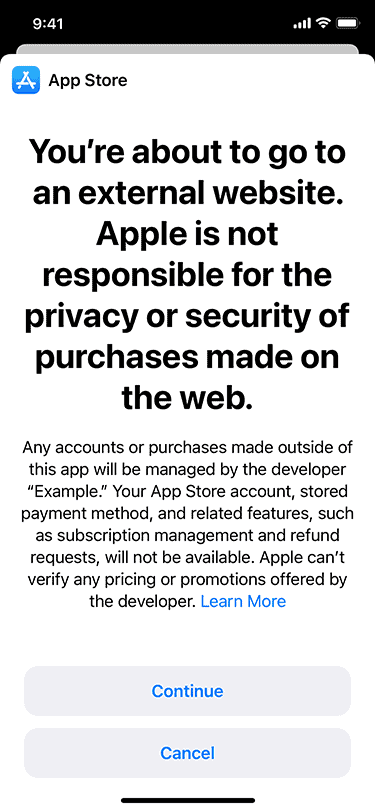Apple's new external payment policy: A slap in the face of developers and the court
Key notes
- The conditions and requirements which Apple has defined for the new external payment policy will essentially discourage all developers from adopting it.
- This unfair and bad faith policy change from Apple is a slap in the face of developers and the court.

Yesterday, the US Supreme Court refused to hear appeals from Apple and Epic Games in the antitrust lawsuit against Apple’s App Store policies. As a result, Apple yesterday announced a new App Store policy that would allow developers to link to external websites for payments within their apps. However, the policy has been met with fierce criticism from developers and industry experts, who accuse Apple of acting in bad faith and undermining the court’s ruling.
The conditions and requirements which Apple has defined for the new external payment policy will essentially discourage all developers from adopting it. This unfair and bad faith policy change from Apple is a slap in the face of developers and the court. Of course, this policy is going to be challenged in the court in the coming days. First, let us take a look at the ridiculous requirements which Apple has explained in their policy page.
- In order to have apps in the U.S. that provide an external purchase link, you have to get special permission from Apple. To use the entitlement, you’ll need to submit a request, enable the entitlement in Xcode, and use required StoreKit APIs.
- The external payments link should be opened in a default browser and not in a web view. Also, the URL should not pass any user parameters, forcing users to login again to make purchases. There should be no redirect or intermediate links or landing page. This will force developers to submit their apps for review every time they want to change the URL. Here’s the full list of conditions for links:
- Go directly to your website without any redirect or intermediate links or landing page;
- Open a new window in the default browser on the device, and may not open a web view;
- Not pass additional parameters in the URL in order to protect the user (for example, their privacy);
- Be statically-defined in the <<SKExternalPurchaseLink>> in your app’s Info.plist file before submission to the App Store;
- Be submitted with your app to the App Store, and shall be resubmitted if the URL changes;
- Adhere to design and language requirements (see below);
- Not mimic Apple’s in-app purchase system, nor discourage users from using it;
- Be displayed no more than once in app, on no more than one app page the user navigates to (not an interstitial, modal, or pop-up), in a single, dedicated location on such page, and may not persist beyond that page; and
- May not be displayed on any page that is part of an in-app flow to merchandise or initiate a purchase using in-app purchase.
- Developers should not include information about purchasing on the website or a link to a website for purchasing on the app’s App Store product page.
- Developers should use one of the below text templates to redirect users for external payments. Yes, developers can’t even use their own language!
- Purchase from the website at www.example.com
- For special offers, go to www.example.com
- For a special offer, go to www.example.com
- Lower prices offered on www.example.com
- Lower price offered on www.example.com
- To get XX% off, go to www.example.com
- Buy for $X.XX at www.example.com
- When a user taps the link, user will be presented with the following screen.

- Apple will be charging a commission on purchases initiated within seven days from link out, as described below.
- Apple’s commission will be 27% on proceeds you earn from sales.
- If you’re a participant in the Small Business Program, or if the transaction is an auto-renewal in the second year or later of an auto-renewing subscription, the commission will be 12%.
- These commission rates apply to all amounts paid by each user net of transaction taxes charged by you. You will be responsible for the collection and remittance of any applicable taxes for sales processed by a third-party payment provider.
- Developers who adopt this external payment system will be required to provide transaction reports within 15 calendar days following the end of each calendar month. Even if there were no transactions, developers are required to provide a report stating that is the case.
- In the future, if Apple develops an API to facilitate reporting, developers should adopt such API within 30 days with an update of the app.
- If commission payment to Apple is due, developers are required to remit payment for the amount invoiced within 30 days of the invoice being issued. Late payments bear interest at the rate of one percent (1%) per month or the highest rate permitted by law, whichever is less.
- Finally, Apple has audit rights pursuant to the entitlement terms. This will allow Apple to review the accuracy of your record of digital transactions, ensuring the appropriate commission has been paid to Apple.
As you can observe from the above requirements and conditions, this is a blatant attempt by Apple to circumvent the court’s order and to discourage developers from using alternative payment options. Apple claims that this is a fair way to account for the value it provides to developers, such as its proprietary technology, tools, user base, and platform security.
Read our disclosure page to find out how can you help MSPoweruser sustain the editorial team Read more




User forum
4 messages